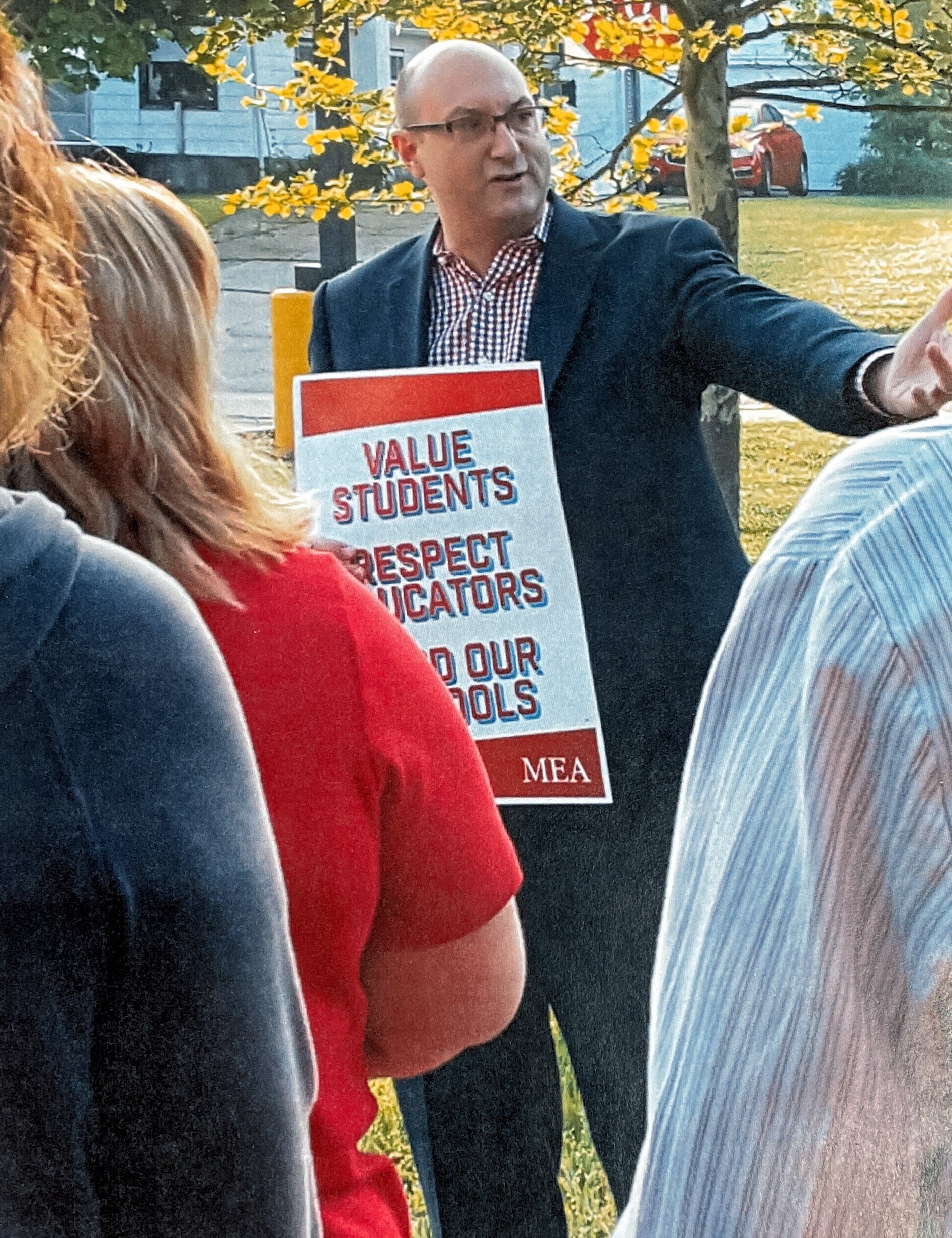Teachers Unions and ELP: A Match Made in (Professional Practice) Heaven
Mike, the MEA officers, and the then NEA president at the Michigan Capitol for our school funding rally (left to right – MEA Vice-President Chandra Madafferi, MEA President Paula Herbart, MEA Secretary-Treasurer Brett Smith, me, and NEA president at the time Lily Eskelsen-Garcia)
Teachers unions are historically associated with important bread and butter issues like pay, benefits and working conditions. But Mike Shoudy, Executive Director of the Michigan Education Association (MEA), wants unions like MEA to also be viewed as a career support partner for teachers.
Mike Shoudy
As he points out, “The union is also a voice for members when it comes to professional practice. And a significant issue we’re all working on is how to support, attract and retain new teachers and educators. We lose about one in five teachers in the first five years of employment. We believe there is space for unions to support the career goals of its members.”
Teachers need support and a safe space
And that support can be found in partnership with new teacher support programs like Educators Leading the Profession (ELP). In fact, new teacher members have told Mike they would love a safe space to talk to somebody about what works or doesn’t work in the classroom.
“Many members have described the first one to five years of teaching like drinking from a firehose,” he recalled. “Helping new teachers sift through that volume of information is so important. With ELP’s program, new teachers have a virtual coach to help on that instructional side, while the building mentor can support them in navigating the school’s culture, administration expectations, how to hold parent-teacher conferences, etc. Someone who has been there and can give advice and encouragement - that means so much to new teachers.”
The added pressure and stresses of the pandemic have made programs like ELP even more urgent. MEA member Jaycob Yang began his teaching career during the pandemic. By December 2020, he was burned out from working nearly around-the-clock because he didn’t know how to pace himself. Situations like these are exactly what ELP support model is designed for.
Collaborative effort gets high marks
Mike meeting with MEA members
Aside from the program’s structure, Mike is especially excited to have so many stakeholders involved in the formation and launch of the ELP’s pilot. It’s been a true collaboration among teachers’ unions from seven states in the Midwest, locals, school districts, teachers, and education partners like Charlotte Danielson.
As the pilot has been rolled out to administrative partners in school districts, the feedback has been positive across the board. Discussions about how this program can support new teachers and improve practice and student outcomes have been, in Mike’s words, “vibrant and positive.”
Mike has also seen an extraordinary shift in the energy and enthusiasm in his and other unions. “We are thinking outside the box,” he said. “Professional practice is our work. Being the voice of our members is our work. Making sure we’re supporting new educators is our work. And our willingness to take a chance on something new is an exciting shift into a space where we haven’t traditionally been involved.”
Because ELP is created by and for teachers, the initial response from teachers has been overwhelmingly positive. Paula Harbert, President of the Michigan Education Association, has spent the vast majority of her life supporting kids as a music teacher. When she first learned about ELP, she was 100% onboard. “So many people want to give back,” Mike noted. “Giving back happens in an informal way all the time. This program is formalizing it and allowing teachers to play a part in helping new teachers be successful.”
The ultimate test of ELP’s pilot will be retention. Once teachers have more skills to deal with the small and large stresses of the job, the goal is to see higher retention rates, which will naturally lead to better student outcomes.



